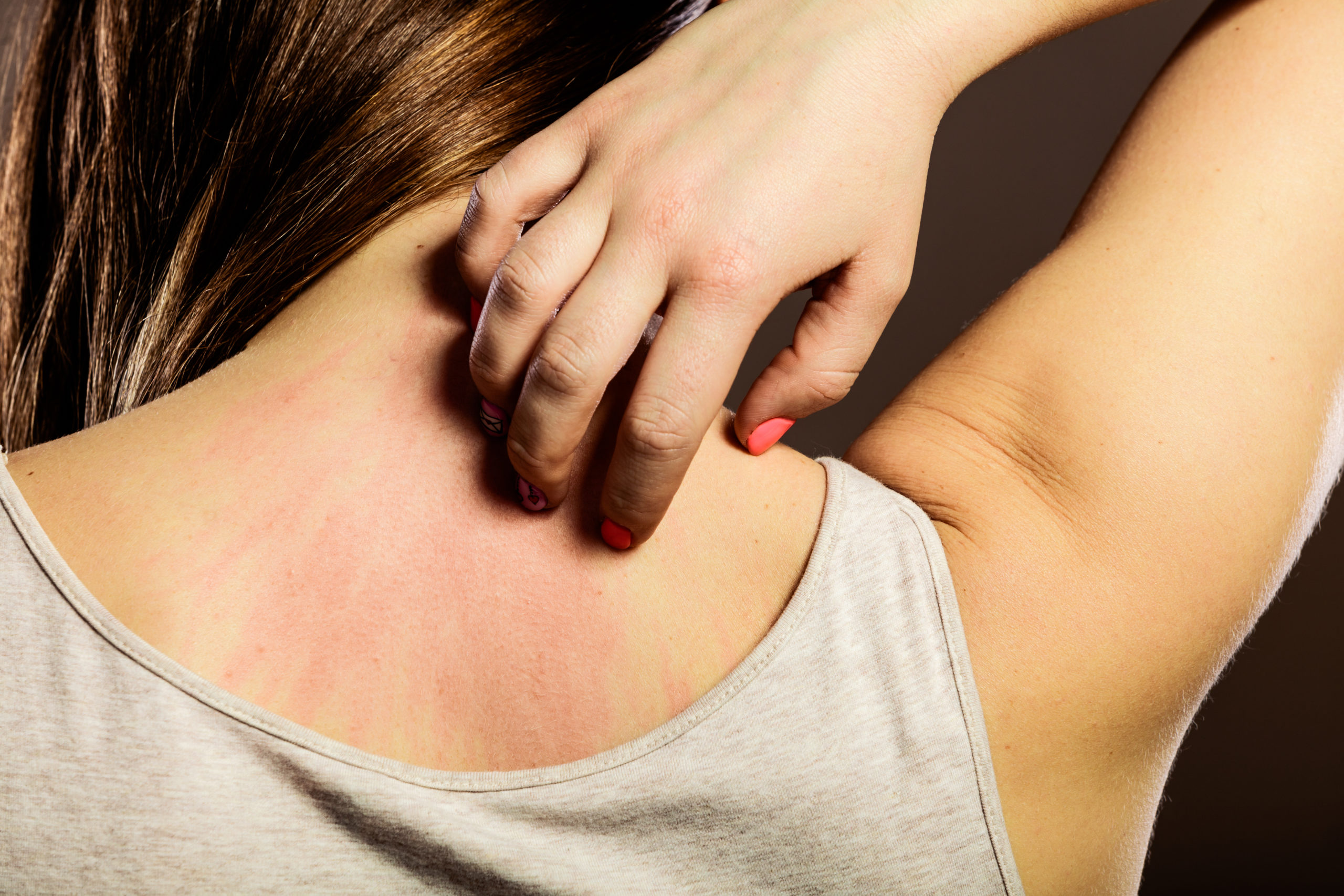It is estimated that humans scratch an itch about 90 times a day. Causes of itches can vary and range from bites, allergic reactions, certain illnesses or dry skin conditions like eczema or psoriasis. But why do we scratch, and should we?
The itchy feeling develops as a warning to protect us from an outside invader like an insect. Skin cells then trigger an immunity response. When you feel an itch, your reflex is to scratch as a natural animal response removing parasites from the skin. For many of us, scratching an itch can be very satisfying, but most medical experts would advise against doing just that. In fact, scratching that itch can cause the itch to become worse.
While we may find some reprieve by scratching, researchers from Washington University’s Center for the Study of Itch say that when we scratch an itch the chemical serotonin is released from the brain, which can initially relieve the itch, but this serotonin release also triggers spinal cord nerve cells which can make us even itchier.
What’s worse, scratching an itch can cause your skin to break, bleed or allow bacteria from your fingernails into the skin, which may result in a bacterial infection, said the Mayo Clinic.
The resulting possible infection can not only make the condition worse and spread but also contribute to future scarring. The American Academy of Dermatology Association
advises that people with poison ivy or similar conditions take extra caution not to scratch as it may open active blisters.
WHY DO PEOPLE SCRATCH
People often rub or scratch their eyes, especially those with seasonal allergies, pet allergies or dry eye conditions. While it’s tempting to rub eyes when they are feeling uncomfortable, doing so only makes itchy eyes worse and can greatly contribute to the spread of disease like viruses or conditions like strep throat.
We use our hands for any number of activities like making food, driving our cars or petting our furry friends. This translates to
a multitude of bacteria on hands even if you wash your hands frequently, said the Cleveland Clinic. If you touch your eyes, you
can spread microbes such as salmonella, staph or streptococcus, increasing risk of sickness. The Clinic recommends that if you have to touch your eyes, wash your hands immediately with soap and water.
The risk of pinkeye (conjunctivitis) is also increased when people rub their eyes. Symptoms of pinkeye include red, watery eyes sometimes paired with a discharge or sandy or grainy particles along the eyelashes, said the National Eye Institute. Eyes can feel painful or heavy. Conjunctivitis can be viral or bacterial, and it is spread very easily. You can avoid pinkeye by washing your hands frequently and not sharing personal items like towels, makeup or pillowcases, according to the Institute. Most cases of pinkeye go away on their own, but some cases may need prescription eye drops for treatment.
Next time you have an itch…resist the urge to scratch! The American Academy of Allergy Asthma and Immunology recommends using natural remedies like cold packs which can help to extinguish an itch. You can also use hydrocortisone cream, which is a mild topical steroid you can buy over the counter, or immerse yourself in an oatmeal bath. More serious conditions causing itching may require a visit to the dermatologist.
Related Articles
Everything You Need To Know About Allergies

